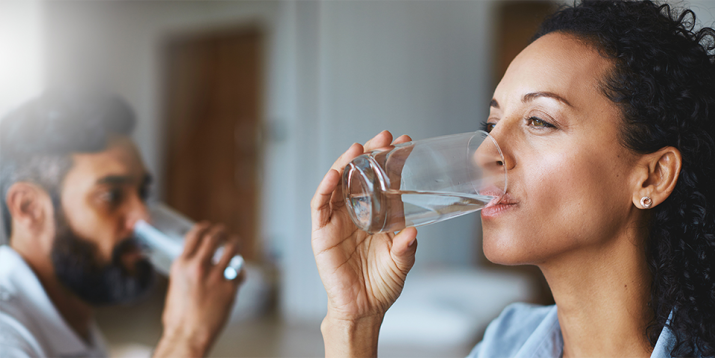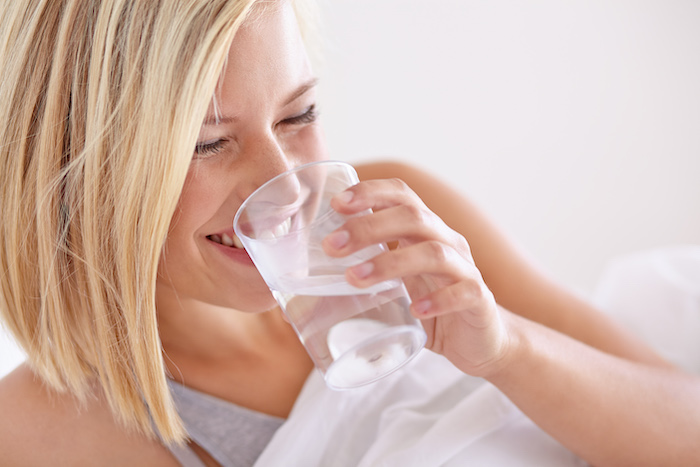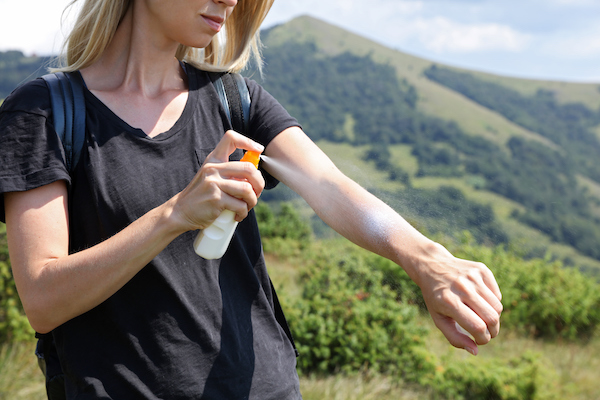Does Drinking Water Really Give You Younger Looking Skin?

Life on the blue planet is all about water. In fact, up to 60% the adult human body is composed of water.
It’s crucial to the function of every organ in your body, including your biggest organ — your skin, which is made of about 64% water.
So it seems like a logical line of reasoning to imagine that downing a few extra glasses of H2O a day could reduce fine lines and plump up sagging skin.
Sadly, the truth is hard to swallow: Drinking water can’t make you look younger.
“No matter how much water you drink, you can’t hydrate away wrinkles,” says Ana Gunn, registered nurse and Clinical Director at Mia La Maven, a premier wellness and aesthetic medical clinic in Los Angeles.
Board Certified Dermatologist Dr. Kimberly Jerdan agrees: “The theory that drinking water prevents wrinkles or signs of aging is false.”
What Actually Causes Wrinkles… and Why Drinking More Water Doesn’t Help

“Aging is definitely multifactorial,” says Dr. Jerdan. Internal factors like stress and genetics and external factors like diet, UV rays, and environmental exposure determine the visible signs of aging.
If you make a face, as your mother would say, it might just stay that way.
“More dynamic faces,” notes Dr. Jerdan, “or faces with lots of muscle movement and strong facial expressions can create lines that stay furrowed on the face.”
“Starting at age 30, we lose 1% of collagen in the skin per year,” she says. As we get older, the bone around our eyes and jawline lose density, causing the fat pads in the face to sink in.
The environmental exposures to our face loosens the skin barrier, making it more difficult to keep skin hydrated.
All of these factors combined, agrees Gunn, can leave the skin looking dull and aged.
But unless you’re severely dehydrated, “the water you drink has little to no affect on skin hydration,” says Jerdan.
What Drinking Water Can Do for You
Even though guzzling gallons won’t fill in fine lines, water is necessary for good skin and good health.
Consuming the recommended 2.7 liters per day for women and 3.7 liters a day for men helps keep your joints, spinal cord, and other tissues in working condition and helps transport waste out of the body, according to the Centers for Disease Control.
Plain and simple, says Gunn, “Drinking water makes you feel better.” When you feel better, you look better.
If you’re feeling tired, Gunn recommends drinking water to combat the visible signs of fatigue.
Proper hydration also helps with overall blood circulation.
One study from 2007 found that supplemental hydration may increase skin blood flow, which, according to Gunn, is “essential to bright and vibrant skin.”
Keep Your Skin Hydrated
Dr. Jerdan says the key to healthy looking skin is keeping the skin barrier intact and hydrated with external moisturizers. “External hydration can help minimize signs of aging more so than internal intake of water,” she says.
Jerden also recommends protecting your skin from UV damage, environmental pollution, and oxidative stress that can weaken the skin barrier.
She also recommends applying a daily moisturizer.
Choose a humectant-based moisturizer to help draw water into the skin, or choose an occlusive-based moisturizer to prevent hydration from leaving the skin.
“Even vitamin C serums can help portray brighter and more vibrant skin,” she says.
Cover Up for Younger Looking Skin

“Sunscreen, sunscreen, sunscreen,” recommends Gunn. Nothing helps reduce the visible signs of aging like studious sunscreen application.
One 2013 study in Australia found that subjects who used sunscreen daily showed no signs of aging after 4.5 years.
Since about 80% of facial aging is due to UV radiation, you’ll want to lather up to keep that baby face.
Eat Your Way to Healthier Skin
Dr. Jerdan suggests a well-balanced diet of lean protein and healthy fats with limited intake of caffeine and sugary drinks.
A healthy diet, sun protection, using moisturizers, avoiding smoking and tobacco, and, of course, proper hydration are the most effective tools to keep the visible signs of aging at bay.
